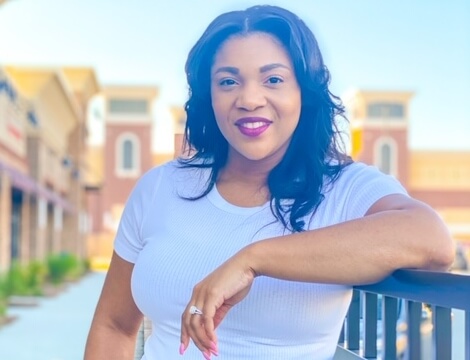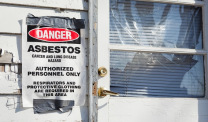A Survivor’s Mesothelioma Awareness Journey
Awareness & ResearchWritten by Tamron Little | Edited By Walter Pacheco

About 99% of the time when I tell people the type of cancer I had, I’m met with blank stares. My favorite comeback line now is, “Have you seen the asbestos exposure commercials? Well, that’s where mesothelioma comes from — exposure to asbestos.”
Then they nod and say, oh yeah, and then here comes another blank stare, because they are wondering how I got it when all they see are older men in the commercials.
To be honest, I can’t fault them for that, because I thought the same thing. Before I was diagnosed I had never heard of mesothelioma, let alone peritoneal mesothelioma.
When I was first diagnosed, I was like, what in the world is that and how in the world did I get it? Oh, did I tell you how old I was? I was a 21-year-old college student who had just had a baby six months prior.
With that being said, my family didn’t know what it was either. As a matter of fact, not a single person I told knew what it was.
I remember I found out in the recovery room, right after I had surgery to take out a fibroid — or at least that’s what my gynecologist thought it was. When he told me it was mesothelioma, I just stared, like huh? What’s that? My family was a little shocked that I had cancer at such a young age, and they didn’t know what it was either.
Learning About Mesothelioma
While I was still in the hospital, here comes my mom and husband with papers they printed off with what they could find on the internet about mesothelioma. They were telling me bits and pieces, but I saw their reaction to what they were reading and just knew it was not good.
It was a bit overwhelming for all of us. My mom kept saying, “But this is an old man’s disease!” The information they found on the internet categorized it as an “older persons” disease and the prognosis was grim.
Side note: We all know people who have used the internet and Father Google to look up things, diagnose themselves, you name it. But when you’ve just been told you have cancer and you go searching Google, it can lead you into the wrong head space.
As my family read more and more, it kind of added fuel to the fire and emotions ran high all day — all week for that matter, for all of us.
With any situation, not knowing much about a particular thing can be scary, but when you’re told you have cancer and you know nothing about it, it is like walking into the unknown darkness.
In the Right Place for Mesothelioma Guidance
Nurses and the case manager came in to set my family up for grief counseling because of the bleak prognosis of the cancer. My mom was so distraught she went and confided in her coworkers. Being that my mom worked at the hospital at the time, when she broke down and told her coworkers, they told her what she needed to do.
They advised her that mesothelioma needed to be treated aggressively and put us in contact with Dr. Edward Levine, one of the best in his field for treating peritoneal mesothelioma. Talk about being in the right place at the right time. My mom’s coworkers gave us more knowledge about what it was and different treatment options.
I know that some people may not have the same situation I had, but there are so many people still out their who are not knowledgeable about mesothelioma.
Mesothelioma isn’t really publicized like other cancers, such as breast cancer or colon cancer, although there are more and more informational resources becoming readily available on the internet. Some TV commercials also advertise legal options for mesothelioma patients and survivors.
I do believe that if I had had prior knowledge of what mesothelioma was, especially peritoneal mesothelioma, then it wouldn’t have felt as if I were blindly going into something.
More importantly, I also would have looked for different mesothelioma resources, aid or even support groups that would have helped me while I was battling the disease.
Some may not get it, but being able to be around other people who had or have the same thing as you, or just hearing their stories, helps a lot. It allows you to see that you are not alone and that there are resources and help out there for you.
This is why raising awareness about mesothelioma is so important, for patients and everyone else. On Saturday, Sept. 26, Mesothelioma Awareness Day — and every day — join me in spreading the word about this rare cancer.






